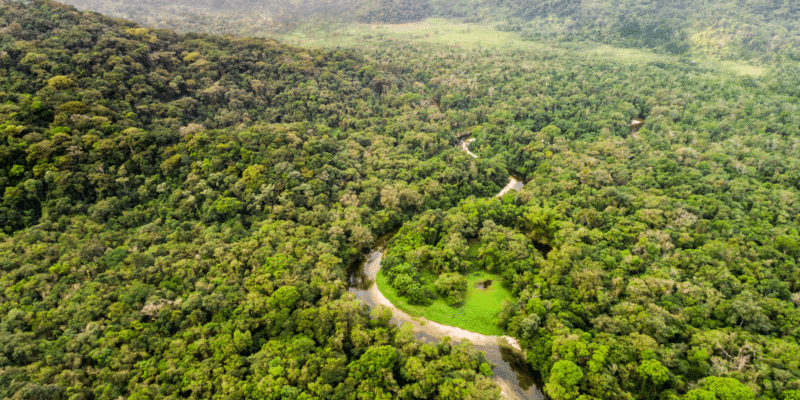After some 30 years of experience in preserving the Congo's forests, France is opting for a new approach. The Projet paysage forestier du Nord-Congo (PPFNC), which places local communities at the heart of forest preservation. The project aims to improve the fight against deforestation in a country where nearly 311,000 hectares of forest are ravaged every year, according to the United Nations (UN).
A new and innovative approach to biodiversity conservation in Congo is taking shape.. It is the North Congo Forest Landscape Project (PPFNC), designed and implemented by the French Ministry of Ecological Transition and Solidarity and the French Development Agency (AFD), for the benefit of the Congolese Ministry of Forest Economy, Sustainable Development and Environment. “This is a real paradigm shift for AFD, which until now has focused on implementing forestry development plans. For the first time, we will not only provide support to certified forest managers. Local populations are now at the centre of our technical and financial operations,” explains Mathieu Auger-Schwarzenberg, the project team leader in AFD’s Agriculture, Rural Development and Biodiversity Division.
The PPFNC aims to achieve a more equitable sharing of forest revenues by contributing to the development of economic activities for the benefit of local communities and indigenous populations living near the 19 forest concessions in northern Congo. The area targeted by the project covers approximately 9.5 million hectares, including the departments of Sangha, Likouala and the northern part of Cuvette-Ouest. The PPFNC is planned to last 4 years and is financed to the tune of 10.2 million euros by AFD and the French Global Environment Facility (FFEM). The project is being implemented in partnership with the Wildlife Conservation Society (WCS).
A worrying rate of deforestation
By improving the management of biodiversity and ecological corridors in the north of the DRC, the PPFNC will help to reduce the anthropic pressure on the ecosystems of this Central African country. By improving the management of biodiversity and ecological corridors in northern Congo, the PPFNC will contribute to reducing anthropic pressure on the ecosystems of this Central African country. According to AFD, the expertise of numerous civil society organizations historically involved in forest sector governance will be mobilized to identify the needs of the populations. For its part, the Ministry of Forest Economy is developing an environmental and social plan that will make it possible to collect missing data on both the current living conditions of local populations and the state of biodiversity.
According to the United Nations (UN), Congo’s deforestation rate is the lowest in the world (0.08%). Almost 65% of the country’s territory is forested.
Boris Ngounou







